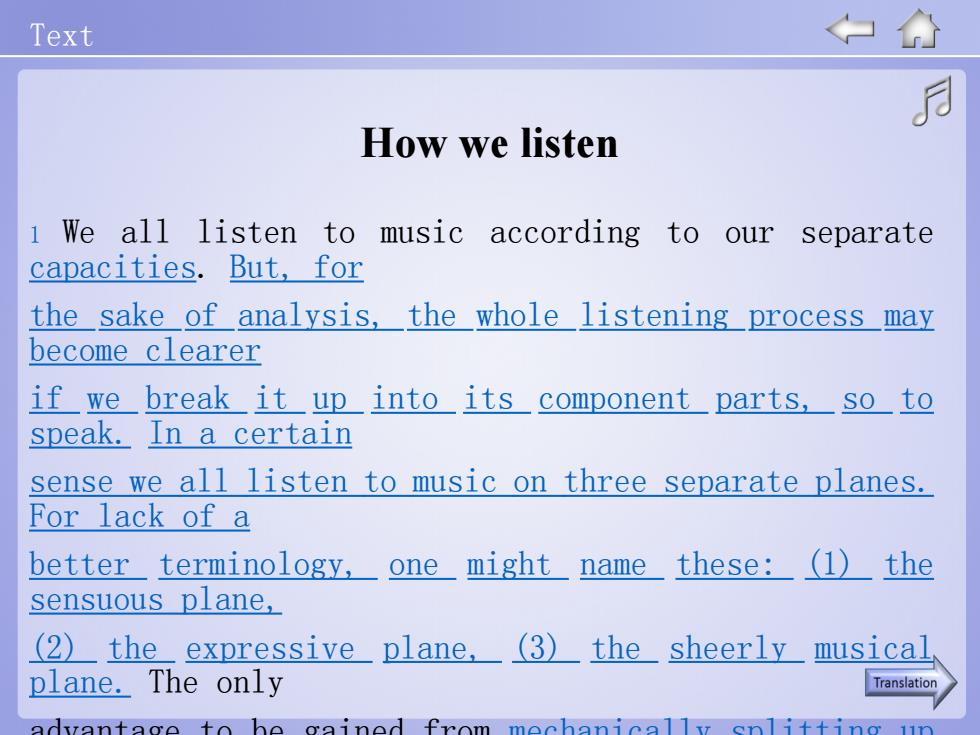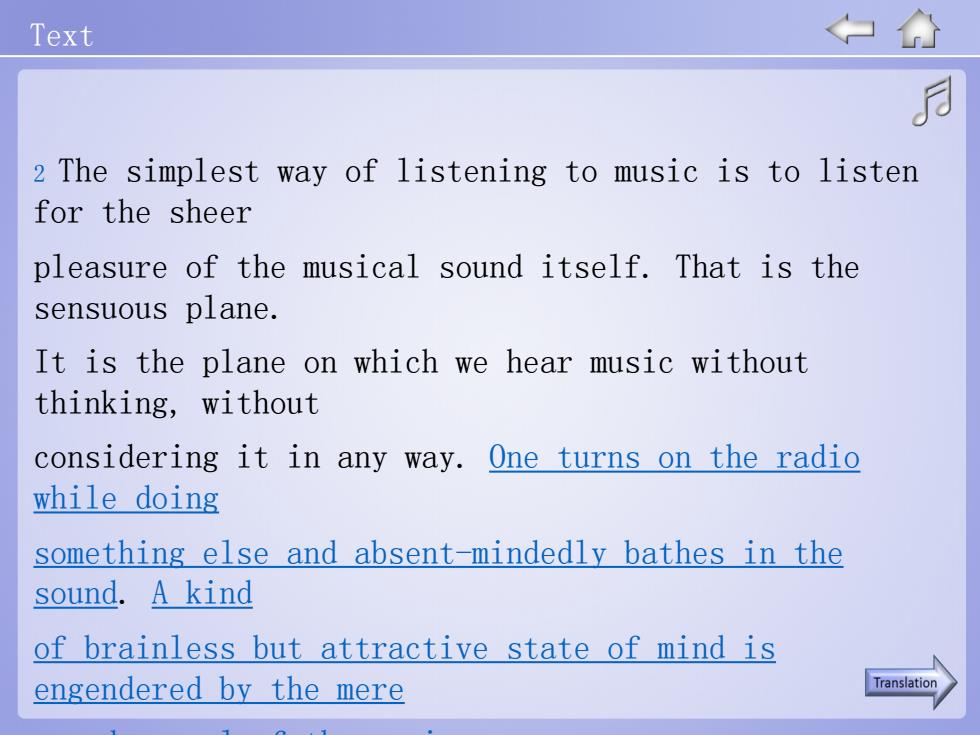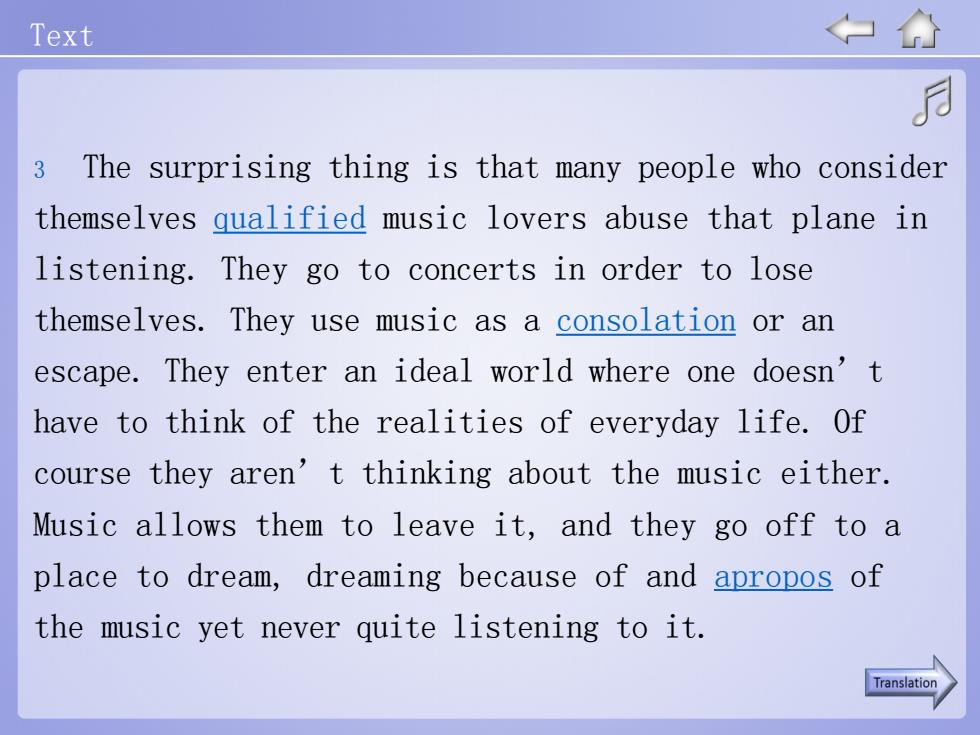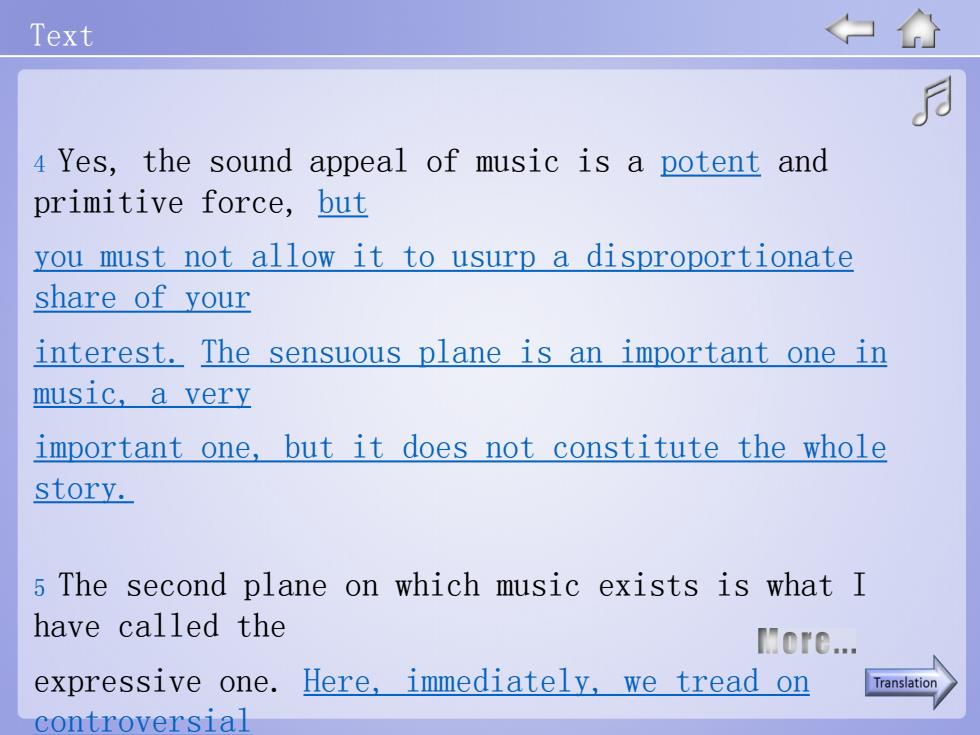
TextBodyParas. 2~9Paras. 2~4The sensuous planeParas. 5~7The expressive planeParas.8-9Themusical planeEND
Text Paras. 2~9 Body Paras. 2~4 The sensuous plane Paras. 5~7 The expressive plane Paras. 8~9 The musical plane

Text月How we listen1 We all listen to music according to our separatecapacities.But,forthe sake of analysis, the whole listening _process_maybecome clearerif we break it up into its component parts,so tospeak.In a certainsense we all listen to music on three separate planes.For lack of abetterterminology,one_might_name_these:(1)thesensuous plane,(2)theexpressiveplane,.(3)the sheerlymusicalplane.The onlyTranslation
How we listen 1 We all listen to music according to our separate capacities. But, for the sake of analysis, the whole listening process may become clearer if we break it up into its component parts, so to speak. In a certain sense we all listen to music on three separate planes. For lack of a better terminology, one might name these: (1) the sensuous plane, (2) the expressive plane, (3) the sheerly musical plane. The only advantage to be gained from mechanically splitting up the listening process into these hypothetical planes is the clearer view to be had of the way in which we listen. Text

Text月2 The simplest way of listening to music is to listenfor the sheerpleasure of the musical sound itself. That is thesensuous plane.It is the plane on which we hear music withoutthinking, withoutconsidering it in any way. One turns on the radiowhile doingsomething else and absent-mindedly bathes in thesound. A kindof brainless but attractive state of mind isTranslationengendered bythemere
2 The simplest way of listening to music is to listen for the sheer pleasure of the musical sound itself. That is the sensuous plane. It is the plane on which we hear music without thinking, without considering it in any way. One turns on the radio while doing something else and absent-mindedly bathes in the sound. A kind of brainless but attractive state of mind is engendered by the mere sound appeal of the music. Text

Text3 The surprising thing is that many people who considerthemselves gualified music lovers abuse that plane inlistening. They go to concerts in order to losethemselves. They use music as a consolation or anescape. They enter an ideal world where one doesn' thave to think of the realities of everyday life. Ofcourse they aren' t thinking about the music either.Music allows them to leave it, and they go off to aplace to dream, dreaming because of and apropos ofthe music yet never quite listening to it.Translation
3 The surprising thing is that many people who consider themselves qualified music lovers abuse that plane in listening. They go to concerts in order to lose themselves. They use music as a consolation or an escape. They enter an ideal world where one doesn’t have to think of the realities of everyday life. Of course they aren’t thinking about the music either. Music allows them to leave it, and they go off to a place to dream, dreaming because of and apropos of the music yet never quite listening to it. Text

Text月4 Yes, the sound appeal of music is a potent andprimitive force,butyou must not allow it to usurp a disproportionateshare of yourinterest. The sensuous plane is an important one inmusic,a veryimportant one, but it does not constitute the wholestory.5 The second plane on which music exists is what Ihave called theHore...expressive one. Here, immediately, we tread onTranslationcontroversial
4 Yes, the sound appeal of music is a potent and primitive force, but you must not allow it to usurp a disproportionate share of your interest. The sensuous plane is an important one in music, a very important one, but it does not constitute the whole story. 5 The second plane on which music exists is what I have called the expressive one. Here, immediately, we tread on controversial ground. Composers have a way of shying away from any discussion of music’s expressive side. Text